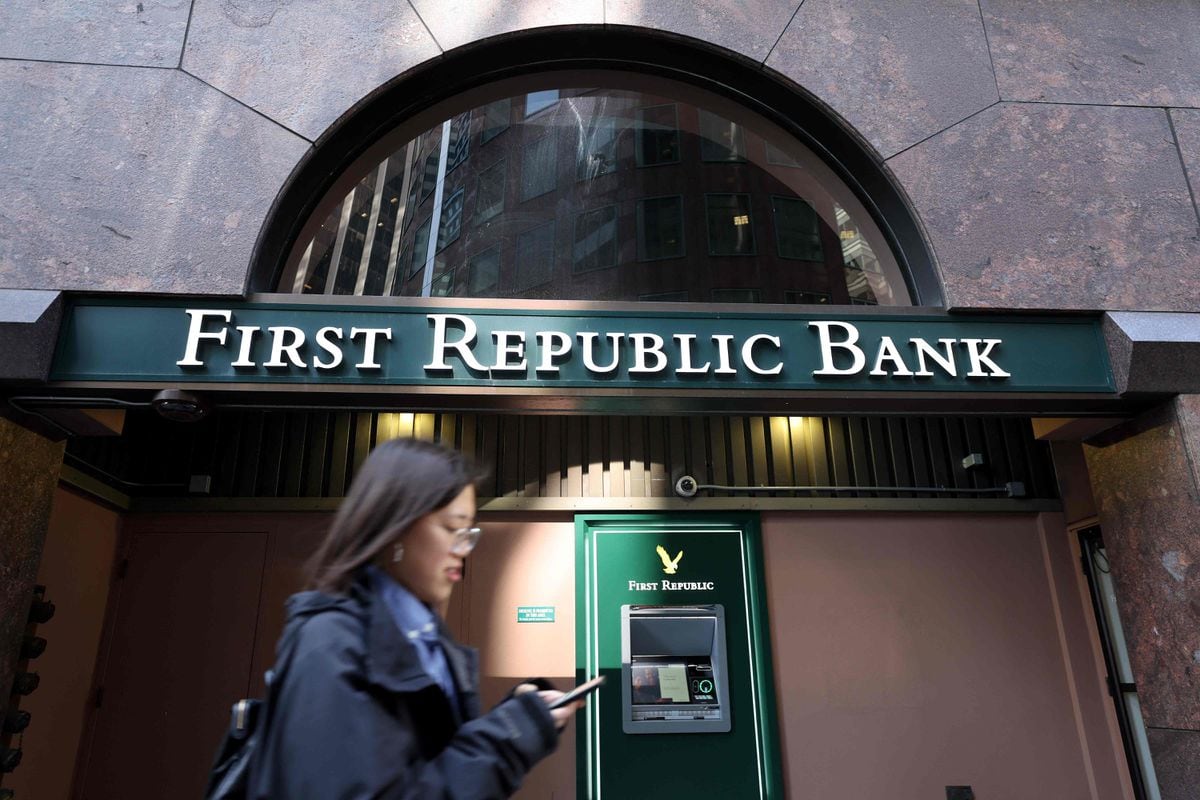A new regional bank disappears in the United States.
The First Republic Bank has become at dawn this Monday the latest victim of the financial crisis that is ravaging the country, which already left Silicon Valley Bank and Signature Bank by the wayside last month.
Just after three in the morning Washington time, the Federal Deposit Insurance Corporation (FDIC) has announced the intervention of the entity and a sale agreement to JPMorgan, the first bank in the United States, which will assume all its deposits and practically all the assets.
"First Republic Bank depositors will become JPMorgan depositors," the text states.
This means that the 84 branches that the First Republic has spread across eight states in the country will operate as of this Monday as part of JPMorgan.
The entity was in the eye of the hurricane, and last week it suffered major collapses on the stock market after reporting that it experienced a massive flight of deposits in March.
His intervention seemed like a matter of time, and it has been confirmed after a weekend of intense negotiations in which the authorities have tried to seal the crack that it represented for the financial system.
The objective, as in the previous bailouts, also carried out over the weekend, was to prevent the bleeding of deposit outflows from continuing, fueled by the spiral of negative news and price falls, which threatened the viability of the bank and could cause a uncontrolled and chaotic bankruptcy.
Founded in 1985, with headquarters in San Francisco and branches primarily in California and high-net-worth urban areas on the East Coast, First Republic was the 14th-ranked bank in the nation by asset size at the end of 2022. Its problem was partly one of solvency and partly liquidity.
He had large unrealized losses on a portfolio of mortgages granted at very low interest rates.
The bank acknowledged that its market value was $27 billion less than its book value, but since these are latent losses, the entity theoretically complied with regulatory capital requirements and even continued to post profitable results.
That good health was, however, fictitious.
Its clients withdrew $102 billion from their accounts in the first quarter, despite JP Morgan and others pumping $30 into it.
In the midst of a crisis of confidence, the First Republic tried to get ahead and rebuild its balance sheet and income statement by canceling the dividend and abolishing the payment of the preference shares, but all efforts have ultimately been in vain, and JPMorgan has imposed in the bid opened by the authorities.
As reported by the FDIC, as of April 13 the entity had $229.1 billion in assets and $103.9 billion in deposits.
Clients who have not moved to another entity will be able to continue using their current branches, although to use JPMorgan's offices they will have to wait for the new owner to send them a notice.
Those technical fringes still to be closed speak clearly of the urgency with which the transaction has been closed.
The FDIC has admitted that the bailout will cost the Deposit Insurance Fund approximately $13 billion, and the FDIC and JPMorgan will split First Republic's losses on outstanding residential and commercial loans.
With the bailout of what had been appearing as the weakest link in the US financial system for several weeks, the authorities hope to have halted the crisis and put an end to the contagion that began with the collapse of Silicon Valley Bank.
It will be necessary to see, however, if among its collateral effects it leaves restrictions on credit that hinder growth, a lower rate of interest rate hikes by the Federal Reserve, or a situation of general weakness for regional banks, now perceived by depositors as more fragile, which has pushed many of them to transfer their savings to larger entities such as JPMorgan, which added 37,000 million in deposits in the first quarter.
The market has received the takeover as good news for JPMorgan:
its shares were up 3% in pre-opening trading on Wall Street.
The titles of the First Republic, on the other hand, fell more than 40%.
Follow all the information on
Economy
and
Business
on
and
, or in our
weekly newsletter

